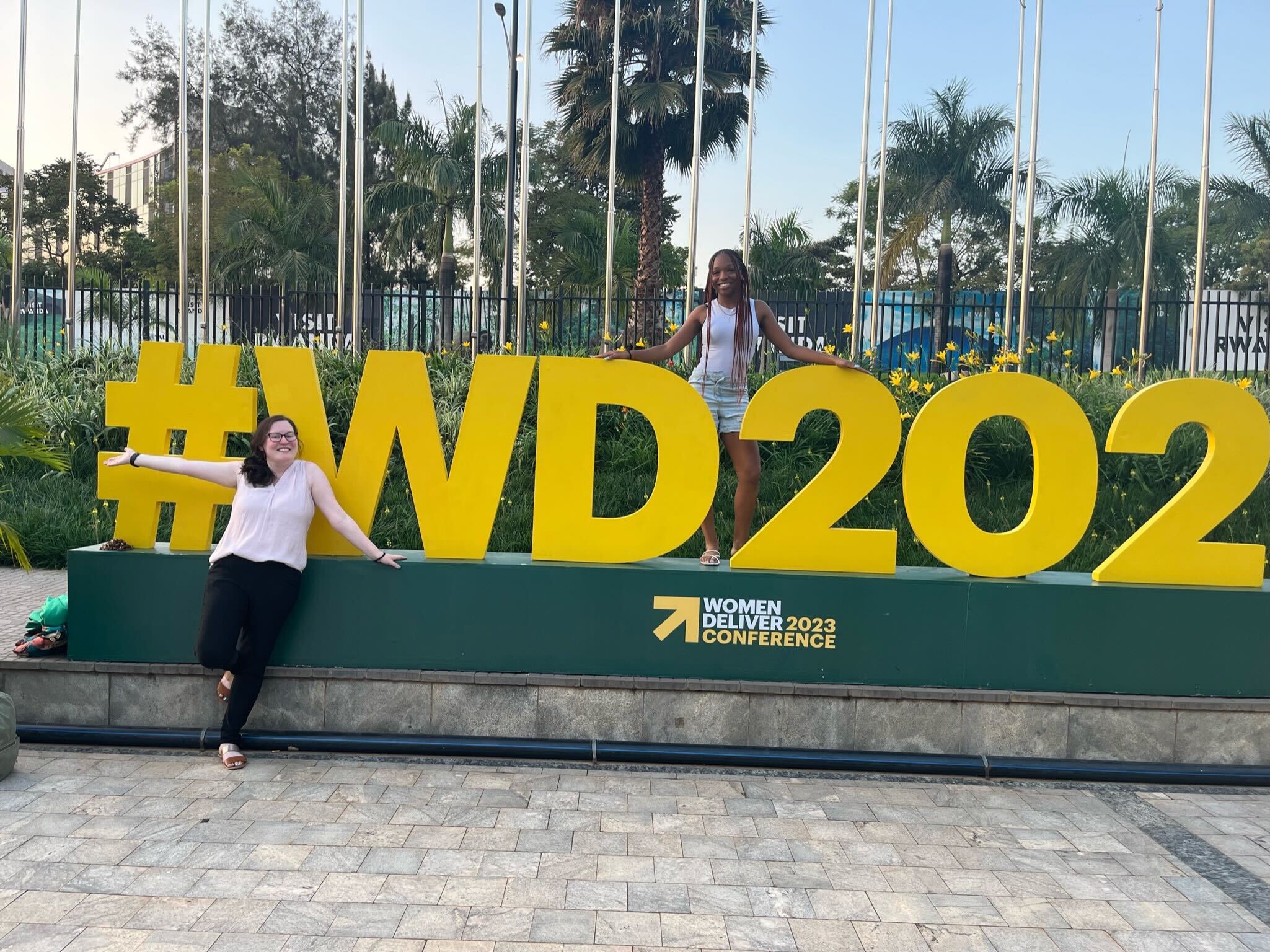America the (Not So) Beautiful for Caregiving

Sammy Chavin-Grant, Federal Strategy Director
Just a few weeks ago, I represented Family Values @ Work at Women Deliver 2023. This was FV@W’s first time attending this conference, one of the largest gatherings of the movement for gender equity meant to create solidarity and cross-movement collaboration. My federal partner-in-crime, Jaida, and I weren’t sure what to expect when we landed in Kigali, Rwanda, but this was an essential experience for our work.
Here at FV@W we often say that the United States is falling behind other countries when it comes to leave, but not only are we falling behind… no one else seems to realize that the “great” American system is full of gaping holes when it comes to care. In conversations with fellow attendees from around the world including Barbados, Canada, Nigeria, and Sudan, they were shocked to learn that an organization like Family Values @ Work would need to exist in the states.
That shock is exactly why we came to this conference. We wanted to learn more about the communal sense of caregiving, and cultural understanding that sick workers do not work that other nations have long practiced. We attended several sessions full of data and examples of ways to innovate centering care. But for me, this cultural understanding of caregiving was most palpable in the conference well-being space. They hosted daily workshops on stress, burnout, and creating space for joy. I had never seen self-care placed on an equal platform to achieving results and transforming communities, at a conference, but this is exactly the type of movement and shift we want to build here at FV@W.
I left feeling inspired and energized by the international feminist movement’s unwavering resilience, even in the midst of growing global authoritarianism and attacks on our communities. While the American caregiving system and structures have a long way to go, I am more committed than ever to using the relationships Jaida and I built and learning from how other countries are getting it right in policy, culture, and practices, and using narrative and culture change to shift practice here at home. We can create a society where having time to care is no longer a rare gift based on location or employer, but rather a social norm that moves our families and our joy to the heart of our culture. And with the movement we’re building here at FV@W, I know we will!